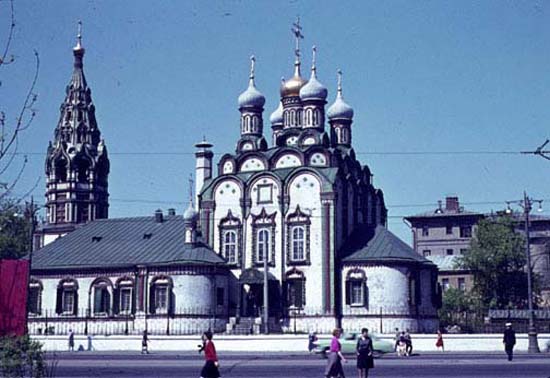
RPCV Kevin Kaye on the Peace Corps departure from Russia
Editor,
In January 1997, I moved to St. Petersburg and began teaching English at the Herzen Pedagogical University. It was dark and cold and classes did not begin for a month, so I walked around the city's museums and curious markets with the most pedestrian awe. I was 22 years old, just out of college in grimy East Los Angeles and had recently suffered a Peace Corps Pre-Service Training of 10 weeks duration in Vladimir.
After the gray of Vladimir, St. Petersburg seemed so bright that my eyes hurt. I would always believe that the town was much more beautiful in the snowy shawls of winter than the bright dust of a teeming summer. I spent more than two years at Herzen as a volunteer, and I was able to accomplish enough that I left without a sense of shame. While I was there, we started an English-language drama club and opened a small library with sleek Penguin Classics instead of clunky Raguda Press editions, Thomas Pynchon instead of Theodore Dreiser. A couple of computers grew into a small lab that was used judiciously by graduate students and faculty and a spry secretary who had tired of her typewriter.
It was not much, but we may have just as easily done nothing and the Peace Corps, the university and the students would have been just as satisfied. I could have just traipsed around the museums and tramped around the unctuous beer bars. And sometimes I did.
There is no more imperfect organization than the U.S. Peace Corps. It relies on long-term volunteers to fill professional positions in other under-funded organizations. Its administration is transient at best and when they are not transient enough they are asked to move, usually to a post with as little in common with the previous as is geographically and sociologically possible. Typically, the Peace Corps adjoins itself to causes such as fighting hunger in Africa, raising health literacy in Southeast Asia, or developing small business in the former Soviet bloc. Usually, it needs support from other lumbering agencies or ministries whose staff is either numb or unaware to the severity of the cause.
Many Peace Corps volunteers were probably ill-equipped to teach English or small-business development to Russians. Still, many were well-equipped and, most importantly, the vast majority were willing at least to try. While I was in college, getting a degree in English, I worked as a cook and I believe I can vaguely remember smoking pot, too. Quite often, my students found my background interesting and griped about the nonexistence of part-time work in lieu of full-time studies. The largely female faculty I worked with was downright amazed when I chipped in with tips on how to make a better soup, reincarnate the potato as something new and tasty, and they delighted when I turned sweetened condensed milk, brinza cheese, pears and some "waffles" into a magnificent tort. I do not recall being accused of flouting pedagogical acumen for such instances.
Likewise, I heard many such stories from other volunteers, many about as busy as I was and most jealous that I landed in St. Petersburg while they were encamped in places like Kirov.
Nevertheless, no volunteer I ever met, in Russia or since then, was equipped to be a spy. Most Peace Corps volunteers had trouble finding new boots for the winter or acquiring an adapter for their beard trimmers. I would submit that any intelligence-agency official who is worried about the counter-revolutionary activities of Peace Corps volunteers must be so delusional and so paranoid that they ought be medically discharged and flogged for outright failure. If Peace Corps volunteers spy, then I am James Bond. All such accusations do is highlight a bureaucrat's desperate attempt to uncover more paper to push.
Volunteers tended to love and hate Russia, usually in direct proportion to how much they missed home. However, we all seemed to agree that, once we realized how fortunate we were to be in Russia - and to have enough money to buy an ice cream whenever we wanted one, or a beer, or pirozhki - then we were really able to do something special with the small group of friends and colleagues whose vision, however small, we shared.
When volunteers from my group were leaving, many were genuinely sad. Some were sad they had frittered away two years never being fortunate, others were sad that they had only glimpsed their fortunes so tentatively and others were sad to leave good friends and families that had adopted them. It seems that the latest group of volunteers will be left with only the most tenuous claims to such feelings and emotions. It is unfortunate. They have lost a lot even though many might be apt to think otherwise. Russians have also lost a lot, not nearly as much but those who did lose something are likely to be those who had the least to lose.
Kevin Kaye
Santa Clara, California
